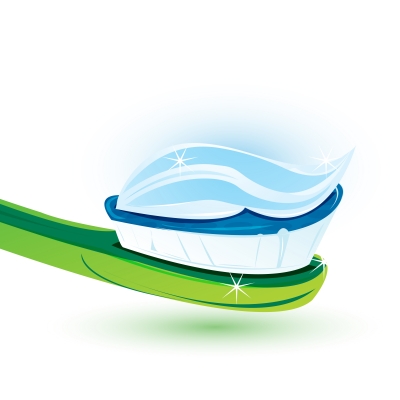It is said that mouth ulcers frequently occur and recur in children and young adults in the age group of 10-20 years. It is also said that some children are especially prone to them. My 10 year old daughter is one of them and is going through a painful and agonizing attack right now. I have noticed that she gets mouth ulcers whenever she is overwrought, overextended and overworked. It is the end of the school year and she is involved in various school, after-school and community events, which are likely making her tired and a little edgy. So I’m putting this post together on curing mouth ulcers naturally to help heal my daughter. I hope that people in the same situation will find this post helpful.
Many people think that the terms mouth sore and cold sore are the same and interchangeable, but actually, they are very different. A cold sore usually occurs around the lips and the outside of one’s mouth, and is caused by the Herpes virus. A mouth sore, on the other hand, is a type of mouth ulcer that can be brought on by stress, nutrient deficiencies and allergies.
Mouth ulcers, also called canker sores and aphthous ulcers, are small ulcers that occur on the sides of the cheek, under the tongue, and inside the lips. While mouth ulcers are neither life threatening or contagious, they can be extremely annoying, and make eating, drinking, and talking very painful. About 1-2 millimeters in diameter, mouth sores show up as red craters with a white or gray coating. Even though mouth ulcers are common to all age groups, they recur frequently in children, teenagers and young adults. Recurring mouth ulcers are agonizing, and people who suffer from them look for solutions that really work, as opposed to temporary solutions like numbing gels that provide relief for a few minutes. Natural treatments are highly effective in not only providing instant relief, but also in treating nutritional deficiencies that cause these ulcers in the first place. Here are a few tips on how to cure mouth ulcers naturally.
1). Switch to a sodium lauryl sulphate (SLS) free toothpaste. Natural food stores sell several SLS free toothpastes and based on our dental hygienist’s suggestion, we have started using the Tom’s of Maine SLS Free toothpaste. Sodium lauryl sulphate (SLS), a common ingredient in most toothpastes available in supermarkets and drugstores has been linked to mouth ulcers. SLS, a foaming agent used in shampoos and hand washes, is also a skin irritant. Hair loss has been linked to shampoos containing SLS, and a small study from the University of Oslo links SLS containing toothpastes to recurrent mouth ulcers.
2). Take a vitamin-B complex supplement after talking to a doctor. A 2009 study reported that a nightly dose of 1000 mcg of vitamin-B12 helped patients with recurrent mouth ulcers in reducing ulcers, and in decreasing the duration of their outbreaks. Even though Vitamin-B12 was used in the study, take a B-complex supplement as a deficiency of B vitamins such as thiamine (vitamin-B1) and vitamin-B6 have also been linked to recurrent mouth sores. If you are a vegetarian, as we are, B vitamin supplementation is not just important, it is paramount.
3). Try a licorice supplement that is deglycyrrhizinated (DGL)to shorten the healing time of mouth ulcers. Glycyrrhizin is the compound in licorice that can increase blood pressure, and so look for a supplement that has been deglycyrrhizinated. Licorice is routinely prescribed in Europe and Japan for stomach ulcers, and naturopaths suggest giving it a try for mouth ulcers also. Remember that chewing on Twizzlers doesn’t count and deglycyrrhizinated licorice available in the form of flavored chews is convenient even for children to take. Dr Andrew Weil advises patients to mix powdered DGL with water and swish it around in the mouth to treat canker sores.
4). Apply slippery elm on the mouth sores to soothe pain and irritation. Dr. Andrew Weil suggests applying a paste of slippery elm with water directly on the mouth sores for instant relief.
5). Go gluten free for a few months. Mouth ulcers are frequent in patients who have a gluten intolerance or celiac disease. Gluten is a compound present in grains like wheat, barley, oats, and rye, and a blood test can pinpoint a gluten intolerance. If celiac disease is diagnosed, a visit to a nutritionist will help in getting started with a gluten free diet.
6). Go to a dentist if braces, dentures, and dental fillings don’t feel quite right. Dental work can lead to mouth sores if they don’t fit properly, or cause abrasions in the mouth.
7). Help your children learn how to self-soothe and discover the tranquility that already exists within them. Teach them how to take deep breaths, relax their shoulders, appreciate the beauty of nature and tap into a joyful state, however hectic their life gets. And talking about hectic, take a day off, every now and then. As Maya Angelou beautifully said it,
“Each person (including children) deserves a day away in which no problems are confronted, no solutions searched for.”
Wishing you peace, joy and a healthy, canker sore-free mouth.
Sources:
- Acta Odontologica Scandinavia; Sodium lauryl sulfate and recurrent aphthous ulcers. A preliminary study.
- Science Daily; Vitamin B12 identified As An Effective Canker Sore Therapy, Study Suggests
- Dr. Andrew Weil; Crazed by Canker Sores
- Image Credit; freedigitalimages.net
